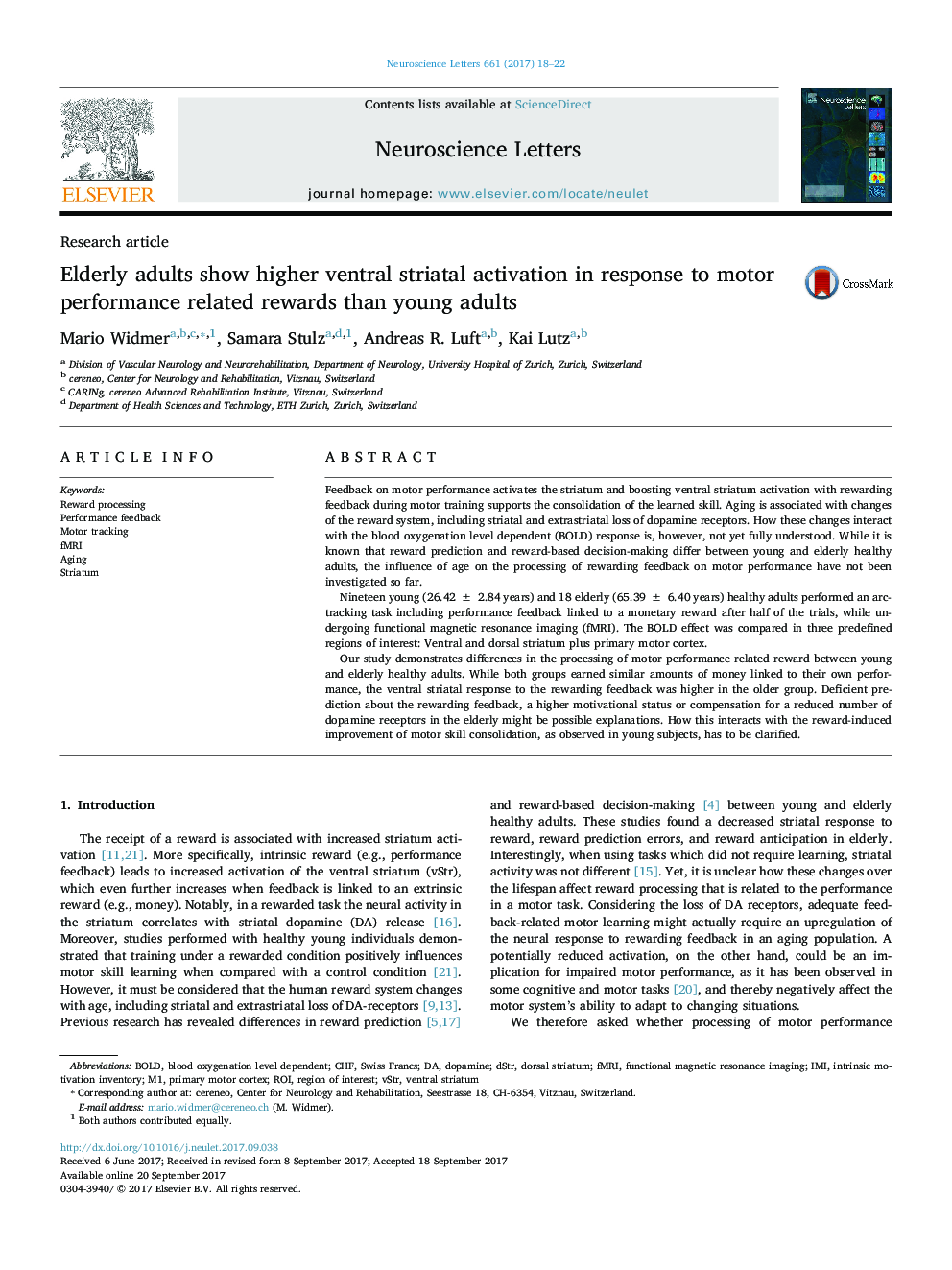| کد مقاله | کد نشریه | سال انتشار | مقاله انگلیسی | نسخه تمام متن |
|---|---|---|---|---|
| 5738368 | 1615038 | 2017 | 5 صفحه PDF | دانلود رایگان |
- Processing of rewarding feedback on motor performance changes throughout adulthood.
- Elderly show higher ventral striatal response to reward linked to motor performance.
- This might affect how motor skill learning can be supported by rewards in the elderly.
Feedback on motor performance activates the striatum and boosting ventral striatum activation with rewarding feedback during motor training supports the consolidation of the learned skill. Aging is associated with changes of the reward system, including striatal and extrastriatal loss of dopamine receptors. How these changes interact with the blood oxygenation level dependent (BOLD) response is, however, not yet fully understood. While it is known that reward prediction and reward-based decision-making differ between young and elderly healthy adults, the influence of age on the processing of rewarding feedback on motor performance have not been investigated so far.Nineteen young (26.42 ± 2.84 years) and 18 elderly (65.39 ± 6.40 years) healthy adults performed an arc-tracking task including performance feedback linked to a monetary reward after half of the trials, while undergoing functional magnetic resonance imaging (fMRI). The BOLD effect was compared in three predefined regions of interest: Ventral and dorsal striatum plus primary motor cortex.Our study demonstrates differences in the processing of motor performance related reward between young and elderly healthy adults. While both groups earned similar amounts of money linked to their own performance, the ventral striatal response to the rewarding feedback was higher in the older group. Deficient prediction about the rewarding feedback, a higher motivational status or compensation for a reduced number of dopamine receptors in the elderly might be possible explanations. How this interacts with the reward-induced improvement of motor skill consolidation, as observed in young subjects, has to be clarified.
Journal: Neuroscience Letters - Volume 661, 20 November 2017, Pages 18-22
